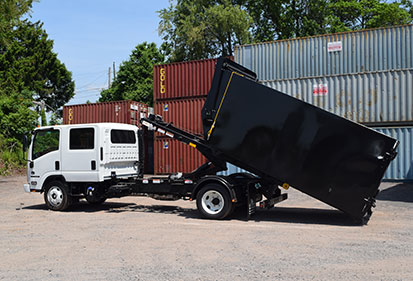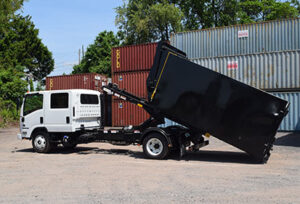Drain cleaning is a vital preventative maintenance task that should be performed on a regular basis to reduce clogs and build-up. While some may use store-bought chemical cleaners to clear blockages, these chemicals can be harsh on pipes and dangerous to your health.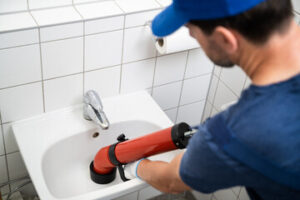
There are several safe, environmentally friendly ways to clean your drains and pipes. Some common home remedies include pouring boiling water down the drain, baking soda and vinegar, and enzymatic foam drain cleaners. Visit https://www.drains4less.com to learn more.
Baking soda and vinegar are two household items that can be combined to create a chemical reaction that helps clear drains of clogs. This method is inexpensive, easy to do, and can be used as a preventative measure to keep your drains clean and free of odors. However, it may not be effective for all types of clogs. In some cases, it may be necessary to use a more powerful drain cleaning solution.
While baking soda and vinegar are safe for most pipes, they can cause damage to older pipes. The chemical reaction between the two ingredients can produce carbon dioxide gas, which can build up pressure inside of your pipes and lead to cracks or leaks. This can be particularly dangerous for older pipes that are made from copper or brass.
When baking soda and vinegar are used to clean a drain, they release carbon dioxide bubbles that help dislodge food waste or other debris that is stuck in your pipes. This simple trick is a great way to refresh a stinky drain or clear a minor blockage, and it’s a good idea to use it at least once per month to keep your drains smelling fresh.
Another natural drain cleaner is salt and hot water. This technique can be especially useful for greasy, sticky blockages that are preventing proper flow of wastewater and sewage. To use this method, first pour a cup of hot water down the drain to loosen any accumulated residues. Then, sprinkle a cup of salt into the drain and pour in a second cup of hot water. Allow the mixture to work for about 30 minutes before flushing with hot water.
Another popular homemade drain cleaner is a mixture of lemon juice and cream of tartar. This solution can be used as an abrasive cleaner that dissolves greasy deposits and fights smelly fungi in your drains. To use this DIY drain cleaner, first run a hot water tap for a minute to warm up your pipes. Then, mix equal parts of lemon juice and cream of tartar in a small bowl and apply it directly to your blocked drain.
Hydro jetting
A hydro jetting drain cleaning service blasts your pipes with a jet of water that eliminates grease, sludge, and mineral deposits. It’s especially effective for hair clogs and food waste buildup in kitchen sinks. It also cleans out the entire circumference of your pipe, so it’s more thorough than snaking or chemical cleaners. It’s ideal for commercial and municipal sewer lines, which can get clogged with a variety of substances that are too large for snaking tools or chemical drain cleaners to remove.
Before attacking the blockage with the hydro jetting hose, the plumber uses a video inspection to determine the severity of the clog and its location in your pipes. This helps him or her avoid damage to your pipes and ensures the correct nozzle is used. In addition to sewer line cleaning, hydro jetting is commonly used for clearing tree root intrusions in the sewer system.
The process involves feeding the hydro jetting hose upstream of your blocked pipe. The plumber then turns on the machine and blasts the hose through the clog. The pressurized water pulverizes and strips away the blockage-causing materials, flushing them into the larger sewer system.
Hydro jetting is an environmentally friendly solution that does not use any harsh chemicals. It’s also effective for cleaning out hard-to-reach clogs and eliminating residue that can cause future blockages. You can help prevent blockages by being mindful of what you put down your drains and by using a garbage disposal mechanism or a mesh strainer for large debris.
It’s important to choose a professional plumbing company with experience in your area. Many areas have different water conditions that can impact your drains and pipes. For example, some may have higher mineral content that can lead to calcium buildup and brittleness. A drain cleaning company with knowledge of the local area will know how to adjust the water pressure accordingly to protect your pipes and provide you with lasting results. It’s also critical to hire a plumber with the right training and certification to ensure your safety and the quality of the work.
Augers
Drain cleaning is more than just a fix for clogged pipes; it’s preventive maintenance that helps keep your plumbing system in good working condition. Keeping your drains clean can help avoid costly repairs down the road. There are a variety of professional drain cleaning services that can remove even the most stubborn of clogs. These services may also include video inspection of your plumbing lines to help identify the source of the clog and determine the best course of action.
Chemical drain cleaners are liquid, gel, or powder products that you can purchase in hardware stores. They work by breaking down and dissolving organic material that accumulates in your drains over time, including hair, grease, and food bits. These cleaners often work well, but can be harmful to your pipes if used incorrectly.
Homeowners can also use natural ingredients to clear blocked drains. Pouring boiling water down a clogged drain can help break down and dissolve grease and other organic materials that are causing the clog. Another option is to mix baking soda and vinegar, which creates a chemical reaction that can clear clogged pipes. This mixture can also be used to clean garbage disposals and eliminate odors.
Other DIY drain clog removal methods include using a hand tool like a drain snake or an auger, which is inserted into the clogged pipe to break up and remove debris. These tools can be dangerous to operate without proper training and should only be used when all other options have failed. Finally, homeowners can try a biological drain cleaner that uses bacteria to break down and dissolve organic material. These cleaners are safe for your pipes and the environment, but they may take longer to work than traditional chemical drain cleaners.
Another common cause of clogged drains is the intrusion of tree roots into sewer lines. These roots are attracted to the moisture, nutrients, and oxygen found in piping, which can lead to major blockages and serious damage. Preventing this issue requires a combination of proactive measures, including planting trees far from sewer lines and installing root barriers.
Chemicals
Most liquid drain cleaners use a combination of chemicals to dissolve substances in the drain and break down clogs. The main chemicals used are acids, caustics, and oxidizers. Caustic drain cleaners typically contain sodium hydroxide (lye) or potassium hydroxide, which are powerful alkaline chemicals that can generate a lot of heat and disintegrate organic materials like hair and grease. Oxidizing drain cleaners contain bleach, peroxide, and nitrates, which oxidize the fats, oils, and other organic materials in a clog to produce heat and gas that breaks down clogs.
While these chemical cleaners may be effective at breaking down a clog, they can cause serious damage to your pipes over time. They can corrode or weaken plastic pipes and eat away at older metal ones, leading to costly pipe repairs or even pipe replacement. The harsh chemicals in these cleaners can also damage your sinks, faucets, and toilets by etching or discoloring them.
Chemical drain cleaners can be toxic to humans as well, if they come into contact with them or inhale their fumes. They can irritate your eyes, skin, and respiratory tract. Long-term exposure can lead to health complications, including cancer. Chemicals can also enter the environment and disrupt water sources by killing the bacteria that break down waste.
Using drain cleaners too often can mask real issues with your plumbing system, such as broken sewer lines or overflowing drain traps. The best way to avoid these problems is to have your plumbing regularly cleaned by a professional. They can inspect your entire system to find the source of the problem and recommend solutions that are safe for your pipes and the environment.
If you have to clean a drain quickly, try pouring a pot of boiling water down the drain. This can help melt and loosen a clog so it can be pushed through the pipes more easily. You can also use a half-cup of baking soda followed by a half-cup of vinegar to clear most small clogs. If these don’t work, call a plumber for more help. Professional plumbers can also recommend ways to prevent clogs from occurring in the first place.
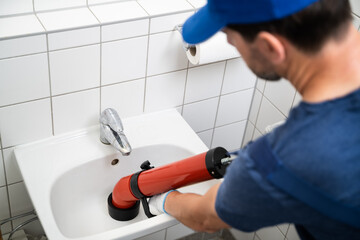


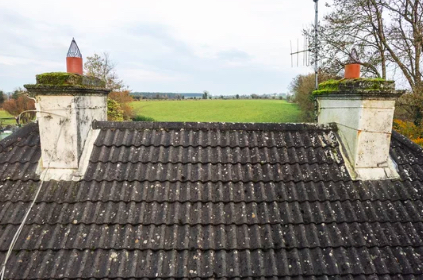
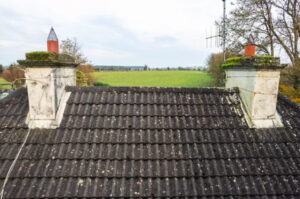 Your chimney should be swept at least once every year. Ideally, you should hire someone to sweep it in the fall before the fireplace season.
Your chimney should be swept at least once every year. Ideally, you should hire someone to sweep it in the fall before the fireplace season.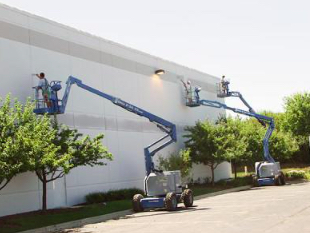
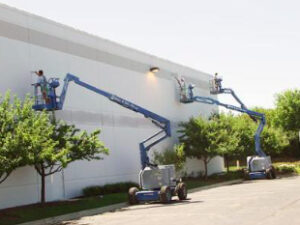 Whether you’re running an office, retail shop or some other business, keeping your place of business in tip-top shape is important for customer perception and company profitability. A fresh coat of paint can go a long way toward making your space look great and encouraging people to return. Having the right painting contractors on hand can make all the difference. Choosing a professional who understands the ins and outs of
Whether you’re running an office, retail shop or some other business, keeping your place of business in tip-top shape is important for customer perception and company profitability. A fresh coat of paint can go a long way toward making your space look great and encouraging people to return. Having the right painting contractors on hand can make all the difference. Choosing a professional who understands the ins and outs of 